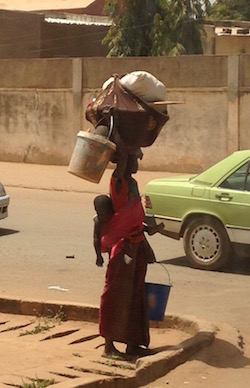Giving Thanks

by Kathy Kuhl
Homeschooling is underway, the weather is changing, and you have dozens of things to do before the holidays, so I’ll keep this short.
As good parents, you’ve been working on your kids manners for years. “What do you say?” we prompt them. “Thank you,” they learn, even when it comes out “Tank too,” or “Fank oo,” or in sign language, something like blowing a kiss.

Those words often become automatic. But I’m trying to stop and mean them when I say them, even in the daily grind, whether it’s to my husband running an errand, or our son offering to help his grandma.
Gratitude is good for us. We are made to function better when we are grateful. Scientists at University of California, Berkeley, report that being grateful strengthens your immune system, lowers your blood pressure, makes you feel less lonely, more generous, and happier. Gratitude “works.”
But that’s not why we teach our kids to say thank you. It’s not why we say thank you. In a crazy, uncertain world, expressing gratitude refocuses our minds and hearts on our blessings.
As I write this, I’m wearing ear protection, so I can think amid the chaos here. We’re getting long overdue remodeling done. I can complain about the noise, dust, changes, delays, questions, and extra errands. Or I can be thankful that I don’t have to do the work, which I couldn’t begin to do. I am thankful for honest, polite, skillful craftsmen, for money to replace the peeling plastic shower, for a new vanity, repaired walls, and so on.
Compared to most of the world, we are quite well off. I think most of my readers have toilets and refrigerators, solid roofs, and safe drinking water. Not all parents do.

In March I had the privilege of visiting Burkina Faso, one of the poorest nations on earth. I met many caring, hardworking people who live there and those who serve them. At one NGO office, I read a sign over a busy administrator’s desk.
There is always, always, at least one thing for which we can express our gratitude every day.
She stopped just work long enough to let me take her picture.
I thank God for you readers, dedicated parents working to do your best to help your children who learn differently. As a veteran who has run that race, I salute you. It is hard. It is worthwhile.
Happy Thanksgiving!
Resources:
My favorite Thanksgiving poem, “Gratefulnesse ” by George Herbert.
On “The Science of Gratitude,” from UC Berkeley.
Dr. Melanie Wilson’s excellent post on ways homeschoolers can express gratitude to those who help them homeschool, on her PsychoWith6 blog.


My son recently said he did not understand gratitude. He is ten, and gave me pause to think. For Christmas, I am buying a gratitude journal for my son, husband and self. I will let you know how it goes. Your article is quite helpful. Thanks also for today’s webinar with the Special Needs Conference. You have inspired me to stay the course. May God’s Grace be upon you & recognized always.
I’m finding it helpful to keep a gratitude journal. I hope you do, too.